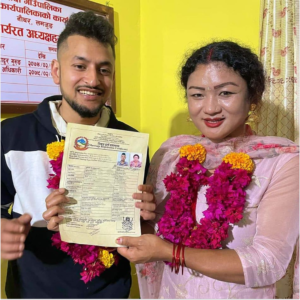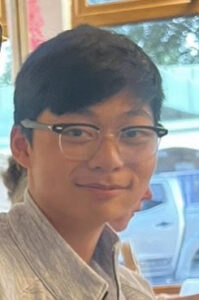“This is a huge achievement not only for us but for all sexual and gender minorities,” he told me commenting on the historic event which unfolded five months after the Supreme Court issued an interim order permitting same-sex couples to register their marriages.
The monumental decision of Nepal’s Supreme Court came on June 28, directing the government to establish a transitional mechanism enabling the registration of same-sex and other non-traditional marriages.
Since 2007, Nepal has officially recognized three genders – male, female, and other – thereby effectively permitting the registration of six different types of marriage.
While human rights campaigners welcomed the verdict, its impact on the ground remained limited. On July 13, Maya Gurung and Surendra Pandey faced rejection when attempting to register their union at the Kathmandu District Court. The court referenced the 2017 Civil Code which only allows heterosexual couples to be married.
In late July 2023, following this setback, I had the opportunity to meet with the couple in Kathmandu. “We are committed to fighting until the very end,” Surendra Pandey said then.
Having shared eight years together, the couple had participated in a traditional Hindu ceremony six years ago at the renowned Sohrakhutte Paknajol Ganesh Temple, where they vowed to stay together for at least seven reincarnations.
Nepal, a country with two primary religions, Hinduism and Buddhism, acknowledges as many as six different genders. Non-traditional unions are commonplace in the temples of Nepal, and the marriage between Surendra Pandey and Maya Gurung followed suit.
In response to their journey, the couple founded the Mayakopahichan Nepal organization, dedicated to supporting other same-sex transgender individuals to prevent them from encountering challenges during marriage.
“We will help any person who wants to get married through this organization,” affirmed Surendra Pandey.




